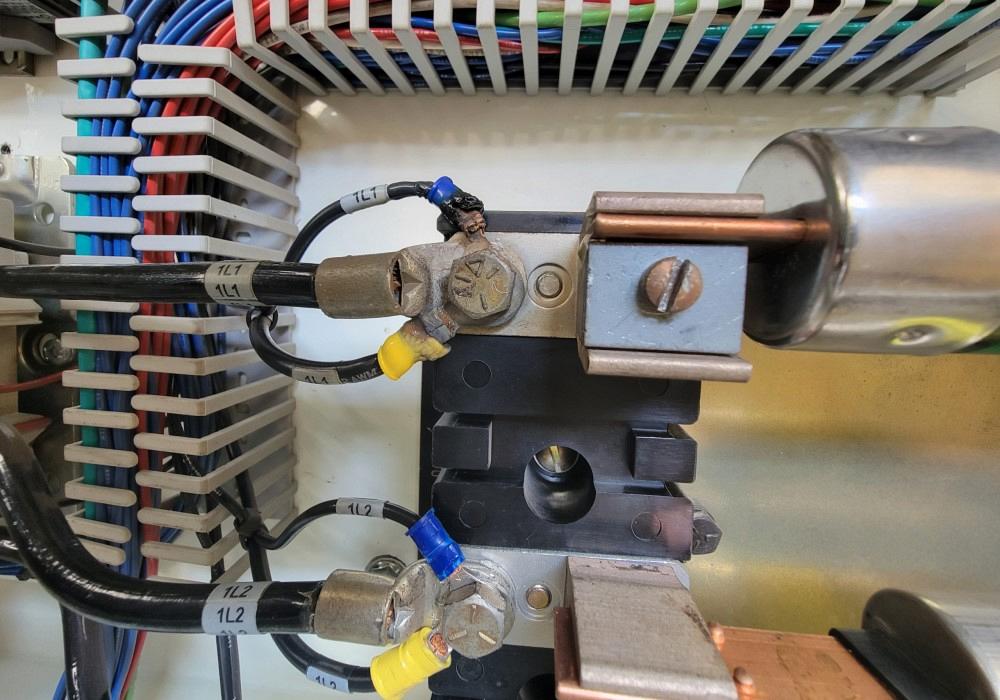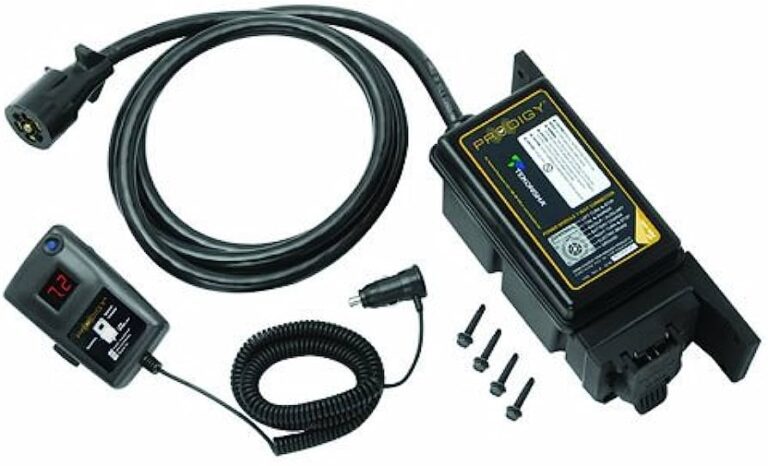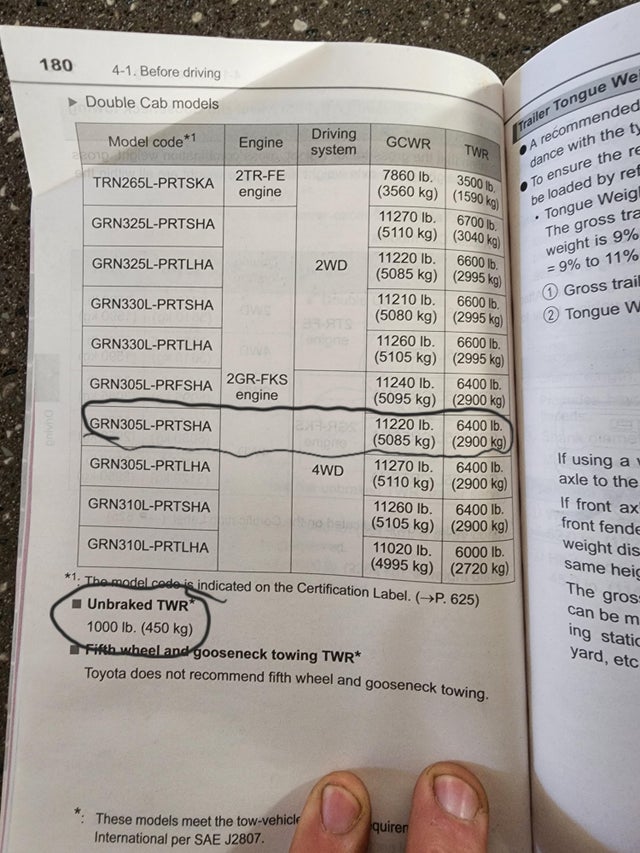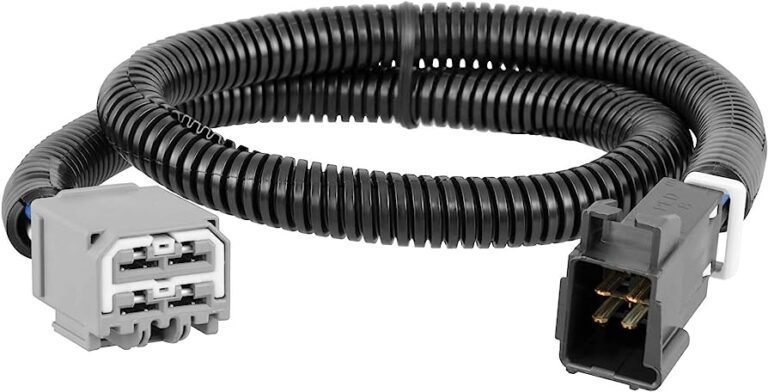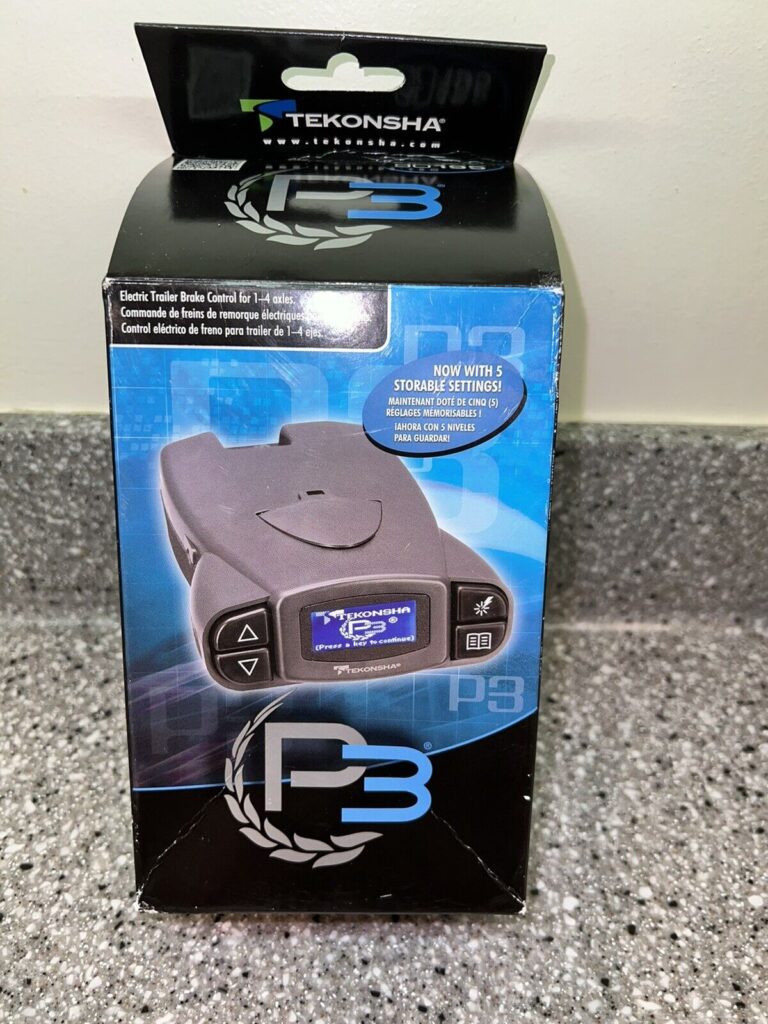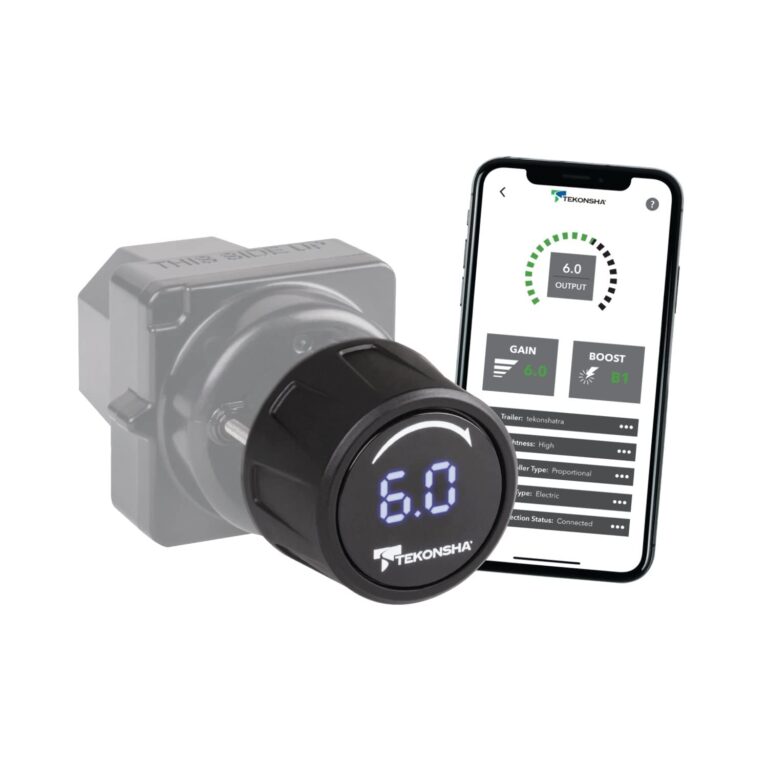Uncovering the Mystery: Fuse for Trailer Brake System
Yes, there is a fuse for the trailer brake system. The trailer brake system is an essential safety feature for vehicles that tow trailers.
Without a functioning brake system, a trailer can become a dangerous hazard on the road. However, like any electrical system, the trailer brake system can experience issues caused by blown fuses. Fuses are designed to protect electrical systems from damage caused by power surges and short circuits.
They work by breaking the electrical circuit if there is an overload. To ensure the safety of your vehicle and trailer, it’s essential to know if there is a fuse for the trailer brake system and to regularly check it for any signs of wear or damage. In this article, we will discuss the importance of fuses in the trailer brake system and how to check and replace them if necessary.

Credit: www.theautopian.com
Understanding The Importance Of Fuses In Trailer Brake Systems
The Role Of Fuses In Trailer Brake Systems
Fuses are an essential component of every electric-powered system, including the trailer brake system. The primary role of a fuse in a trailer brake system is to prevent damage to the system’s components when there is a sudden power surge or overload.
This burst of electricity can occur due to several reasons, such as a damaged wire, a malfunctioning brake controller, or a short circuit. If any of these issues occur, the fuse blows, cutting off the power to prevent further damage to the system.
Common Causes Of Fuse Failure In Trailer Brake Systems
While fuses are designed to protect the brake system, they can fail and cause problems if the underlying issues are not addressed. Here are some of the standard causes of fuse failures in trailer brake systems:
- Corrosion: Corrosion can build up on the fuse contacts over time, which can lead to a voltage drop, blowing the fuse.
- Overloading: Fuses have a maximum current rating, and overloading the circuit can lead to a blown fuse.
- Short circuit: A short circuit can occur when a hot wire comes in contact with a ground wire or another circuit wire. This can create a sudden, excessive flow of current and blow the fuse.
- Old age: Fuses have a limited lifespan, and after a while, they can become unreliable and blow out for no apparent reason.
Impact Of Faulty Fuses On Trailer Brakes
A blown fuse in the trailer brake system can have severe consequences for the driver, passengers, and other road users. Here are some of the effects of a faulty fuse on the trailer brake system:
- No brakes: A blown fuse results in no power to the brake system, leading to no brakes on the trailer. This can cause accidents, injuries, or fatalities.
- Damage to the brake system: A faulty fuse can cause a power surge that can damage other brake system components such as the brake controller, magnets, and wiring.
- Legal consequences: Driving a vehicle with faulty brakes is illegal and can result in a fine or criminal charges.
Fuses are an integral part of the trailer brake system, helping to prevent damage and ensuring the safety of drivers and other road users. It’s essential to understand how fuses work, the causes of fuse failure, and the consequences of a faulty fuse in the trailer brake system.
How To Choose The Right Fuse For Your Trailer Brake System
Factors To Consider When Choosing Trailer Brake Fuses
When it comes to choosing the right fuse for your trailer brake system, some crucial factors need to be taken into account. Here are the key considerations to keep in mind:
- Amperage rating: The fuse’s amperage rating is the primary factor to consider when choosing the right fuse for your trailer brake system. A fuse with an unsuitable rating can lead to dangerous situations by either blowing off too quickly or not at all.
- Fuse type: Another essential factor is the type of fuse. Glass fuses, blade fuses, and resettable fuses are the three common types used in trailer brake systems.
- Vehicle model: Your vehicle’s make and model also play a vital role in selecting the fuse. It can affect the amperage rating requirements, as well as the type and size of the fuse.
Types Of Fuses For Trailer Brake Systems
There are three types of fuses commonly used for trailer brake systems:
- Blade fuses: Blade fuses consist of zinc alloy blades that fit into a clip or holder. These fuses come in different sizes, shapes, and amperage ratings and are easy to replace.
- Glass fuses: Glass fuses are the traditional type of fuse and consist of a glass tube with a metal cap on each end. They are available in various amperage ratings and are suitable for low current circuits.
- Resettable fuses: Resettable fuses are self-renewing and automatically reset after they blow off. These fuses are beneficial when you don’t have a spare fuse and are unsure of the exact cause of the issue.
Understanding Fuse Ratings And Guidelines For Trailer Brake Systems
Fuses can blow off without any warning, especially if they’re not rated correctly. Therefore, it’s essential to understand the guidelines when choosing and replacing fuses for your trailer brake system.
- Amperage rating: The fuse’s amperage rating should not exceed the maximum current capacity of the circuit it is protecting. The recommended fuse rating for a trailer brake system is between 15 to 30 amps.
- Voltage rating: The voltage rating of the fuse should be equal to or greater than the circuit voltage.
- Temperature: Fuses might be exposed to high temperatures, so ensure that the fuse can withstand high temperatures.
- Replacement: Always replace a blown fuse with the same type and rating as the original.
Choosing the right fuse for your trailer brake system is crucial to ensure safety on the road. Keep in mind the amperage rating, fuse type, and vehicle model when making your decision. Always follow the guidelines when selecting and replacing fuses for your trailer brake system.
Common Issues With Trailer Brake System Fuses
Troubleshooting Trailer Brake System Fuses
If you experience issues with your trailer brake system, the fuse is often a culprit. It’s essential to troubleshoot the problem to avoid further damage to the system.
- Check the fuse – start with the fuse, it’s the most common issue with the trailer brake system. Visually inspect it to see if the metal connector is intact. If it’s blown, replace it with a new one.
- Test the wiring – check if the wiring is connected properly, and there are no visible damages. Use a multimeter to test the current. If you don’t have experience with it, consider taking it to a professional.
- Examine the brake controller – ensure the brake controller is functioning correctly. If it’s not working, check the connections and wiring.
Signs Of Fuse Failure In Trailer Brake Systems
Recognizing the signs of fuse failure can save you from further damage or even accidents.
- Brake lights are not working – when the fuse is blown, the brake lights on the trailer may not work, leading to accidents.
- Unresponsive brakes – when you press the brake pedal, and the brakes on the trailer are not responsive or not working correctly, it’s a sign of fuse failure.
- Breakaway system failure – if the vehicle towing the trailer disconnects, the breakaway system on the trailer activates to avoid a breakaway. If the system is not functioning correctly, it’s a sign of fuse failure.
How To Replace Trailer Brake System Fuses
Replacing the fuse is a simple process that can be done without professional assistance.
- Locate the fuse box – the fuse box can be found either under the hood or under the dashboard of the vehicle. Refer to the owner’s manual to find its exact location.
- Identify the blown fuse – look for the fuse responsible for the trailer brake system and check if the connector is intact.
- Remove the blown fuse – use a fuse puller or a pair of pliers to remove the blown fuse from the connector.
- Replace the fuse – insert a new fuse of the same rating into the connector, aligning the pins correctly.
- Test the system – with the engine on and the trailer connected, test the brake system to ensure it’s working correctly.
Understanding the common issues with the trailer brake system fuses, the signs of fuse failure, and how to replace them will help you address any problems quickly and efficiently. Always remember to prioritize safety when dealing with trailer brake systems.
Essential Tips For Maintaining Trailer Brake System Fuses
When it comes to the trailer brake system, proper maintenance is a must. One of the key components of this system is the fuse, which acts as a protective device against overloading and short circuits. Here are some essential tips for maintaining the trailer brake system fuses.
Regular Inspection And Testing Of Trailer Brake System Fuses
Regular inspection and testing of the trailer brake system fuses should be a part of your maintenance routine. Here are some key points to keep in mind.
- Check the owner’s manual for the recommended fuse rating and type.
- Inspect the fuse for signs of damage, such as cracks or burns.
- Use a multimeter to test the fuse for continuity.
- Replace the fuse if it shows signs of damage or has no continuity.
Best Practices For Fuse Replacement And Installation
Proper replacement and installation of the trailer brake system fuses will ensure its optimal functioning. Here are some best practices to follow.
- Turn off the power to the trailer brake system before replacing the fuse.
- Remove the fuse using a fuse puller or pliers.
- Clean the fuse holder contacts before installing the new fuse.
- Insert the new fuse of the recommended rating and type.
- Test the trailer brake system to ensure proper functioning.
Protective Measures To Prolong The Lifespan Of Trailer Brake System Fuses
Proper handling and protective measures can prolong the lifespan of the trailer brake system fuses. Here are some protective measures to follow.
- Avoid overloading the trailer brake system.
- Keep the system dry and clean.
- Use suitable connectors and wiring for the system.
- Use surge protectors or voltage regulators to protect the system from voltage fluctuations.
- Store spare fuses in a dry and accessible place.
By following these essential tips, you can ensure the optimal functioning of the trailer brake system fuses and prolong its lifespan. Regular inspection, proper replacement and installation, and protective measures will keep your trailer brake system in top-notch condition.
Frequently Asked Questions For Is There A Fuse For The Trailer Brake System
Is There A Fuse For The Trailer Brake System?
Yes, there is a fuse for the trailer brake system.
What Happens If The Brake System Fuse Blows?
If the brake system fuse blows, the trailer brakes will not function.
How Often Should I Check The Brake System Fuse?
It’s recommended to check the brake system fuse during regular vehicle maintenance.
Can I Replace The Brake System Fuse Myself?
Yes, you can replace the brake system fuse yourself as long as you know the fuse type and amperage.
What Factors Can Cause The Brake System Fuse To Blow?
Overloading the trailer, faulty wiring, and short circuits are some of the factors that can cause the brake system fuse to blow.
Conclusion
After reviewing the information presented, it is clear that trailers equipped with brakes do require a fuse. This fuse is essential to maintain the braking system’s functionality and prevent accidents while towing. Taking the time to locate and regularly inspect the fuse for any damages or issues is crucial for maintaining a safe towing experience.
Additionally, following the manufacturer’s guidelines for the type of fuse and amperage needed is paramount. Choosing the wrong fuse can have catastrophic consequences. Overall, it is always better to err on the side of caution when it comes to towing safety.
By being diligent in maintaining the proper fuse for the trailer brake system, drivers can have peace of mind knowing they are taking the necessary steps to ensure safe travels for themselves and other drivers on the road.

